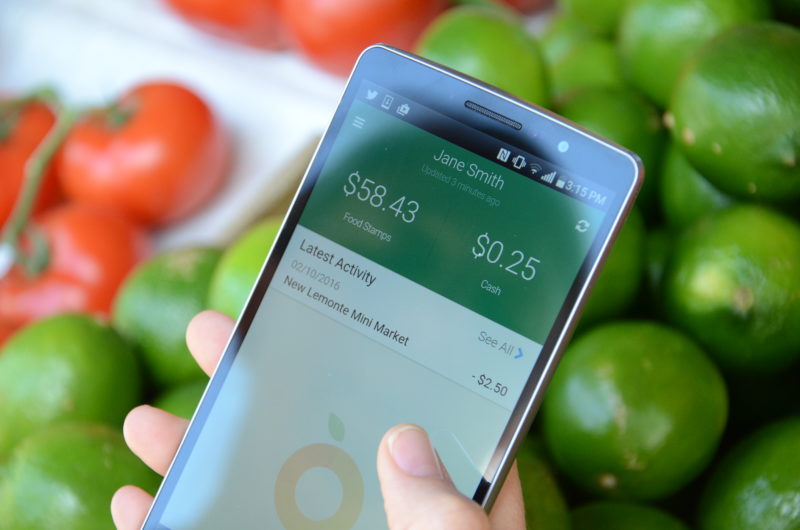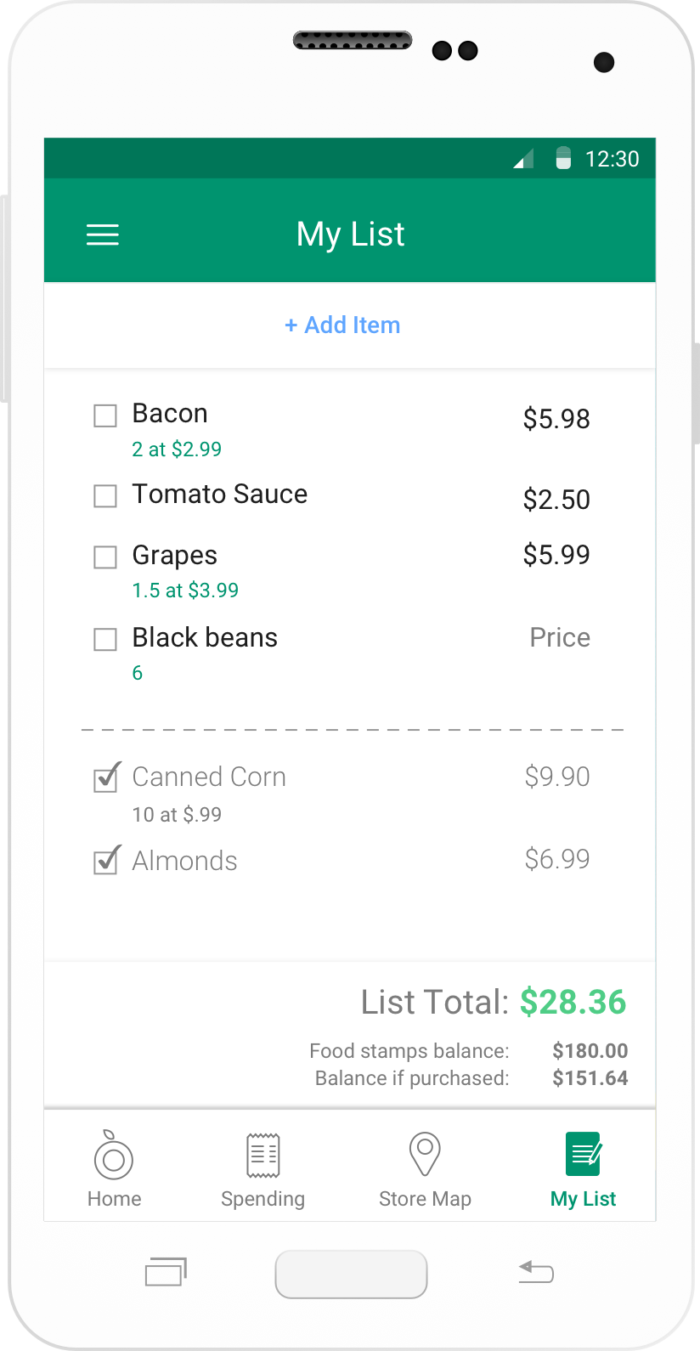How an App Helps Low-income People Put Food on the Table
Brooklyn tech startup Propel created the smartphone app Fresh EBT so consumers can manage their government benefits
The Fresh EBT app shows balances, store locations and other vital information (Photos courtesy of Propel)
“If Con Edison overcharges me by $5 for my monthly heating bill, it sucks but I could pay it,” says Jimmy Chen, founder and CEO of the Brooklyn-based tech company Propel. “If you’re low-income and don’t have a lot of money, having to call and spend the hour on the phone trying to get that money back is really important, and really frustrating.”
A former product manager for Facebook, Chen and his team at Propel are dedicated to addressing the concerns of people living below the poverty line, namely how to navigate bureaucratic processes and put food on the table. They’ve built a smartphone app called Fresh EBT, which helps people receiving government food-assistance funds with an assortment of tasks that many more fortunate souls take for granted.
“In 2014,” the year Chen launched the company, “a lot of software, especially built in Silicon Valley, tended to solve the problems that wealthy people had,” he says, citing apps for dating, restaurant finding, and laundry pick-up. “As a 27-year-old man living in San Francisco, every need and whim was catered to by the app store. It seemed pretty unfair that was the case for me, but not true for a 45-year-old single mother who lives in Kansas.”

Founder Chen, second from left, with members of the Propel team
That summer, he moved to Brooklyn after joining a fellowship program called Blue Ridge Labs. Sponsored by Robin Hood—New York City’s largest poverty-fighting organization, supporting around 200 nonprofits—the Blue Ridge Labs fellowship helps tech entrepreneurs develop ventures that address poverty issues. Chen began talking with New Yorkers enrolled in the Supplemental Nutrition Assistance Program, or SNAP, still colloquially known as “food stamps.”
These days, instead of getting paper coupons discounting various assistance-eligible items, people in SNAP are awarded an Electronic Benefits Transfer (EBT) card, which acts like a debit card when swiped at grocery stores. One woman Chen spoke with about the daily challenges of living in poverty told him that before every trip to the grocery store, she called a helpline to check the balance on her EBT card, which is periodically replenished.
“She had the number saved on speed dial,” Chen recalls. “She immediately—before the automated voice prompt started talking—pressed a one and a three and then typed in her entire card number purely from memory.” (New York State’s EBT cards have a 19-digit identification number splayed across the front.)
Chen felt the process seemed oddly primitive because, in the consumer banking world, years-old apps had removed such steps for their users. With 42 million Americans receiving food assistance, comprising 11% of all grocery-store revenue—some $70 billion—Chen thought the development of a phone app designed for SNAP participants was in order.
Shortly after the three-month fellowship was complete, Chen and his small team at Propel had crafted the Fresh EBT app. It displays the user’s EBT card balance and transaction history. There are digital maps locating grocery stores that accept EBT—a feature that includes farmers markets, which Chen calls “a really important resource for our users.”

The Fresh EBT app helps with planning, finding discounts, and even recipes
Propel has partnered with major food retailers, including Walmart, ShopRite and Stop & Shop, as well as local stores, letting the now 1 million Fresh EBT users know who accepts EBT cards. Store specials appear on the app too, and a partnership with Coupons.com means Fresh EBT users can “clip” digital coupons, cashing them in at participating retailers.
“We also partnered with a nonprofit that provides recipes that are low-cost, high-nutrition, and simple to prepare,” Chen says. “And we built a budgeting feature that allows our users to think about how they might spread their benefits throughout the month, so they don’t run out.”
Though Fresh EBT is free to download, the for-profit Propel pulls in revenue by selling various promotions to grocery stores and brands. “It’s really about helping [those] partners understand how many of our users are currently shopping at their stores, and the incremental amounts of revenue they capture” from them, Chen explains. “Our theory is that we can give those grocery stores and brands a way to compete to help our users save money—as a way to gain more of a market share.”
Propel’s first partner was a produce store on Fort Hamilton Parkway, 3 Guys from Brooklyn. Store manager Philip Penta says 90% of the store’s goods can be bought with EBT cards, and the Fresh EBT app means fewer customers calling the helpline to find out their card balance as they check out, which could be disruptive to other shoppers. The app has brought new customers to his store, Penta says, and spread greater awareness about their specials to those who get EBT, a “huge” contingency of his clientele. “They’re great people, they’re smart people,” Penta says of the team at Propel. “I think they found a niche that wasn’t being filled and hit a home run with the app.”
Tech investors believe in the company too. Propel has procured $6.6 million in funding so far, according to Crunchbase. Via seed funding last year, they raised $4 million from investors including the Silicon Valley VC firm Andreessen Horowitz and the venture firm launched by NBA star Kevin Durant. Propel also won more than $1 million in a Financial Solutions Lab competition, in which entrants proposed solutions to help households better manage their finances.
Before looking to develop new software, Chen says Propel is singularly focused on getting the word out about Fresh EBT. So far they’ve tapped into only about 5% of the market, he estimates, and is working with consumers, food banks and retailers to building awareness of the app via word-of-mouth, poster campaigns and other means.
No matter what’s next, expect Propel to continue innovating right here in Brooklyn. “We started the company here, and we’ve been here the past four years,” says Chen, who moved the Propel offices from Cobble Hill to Fort Greene during that period. “It’s really important to us that we’re a part of the New York City community, and part of the Brooklyn community in particular.”













